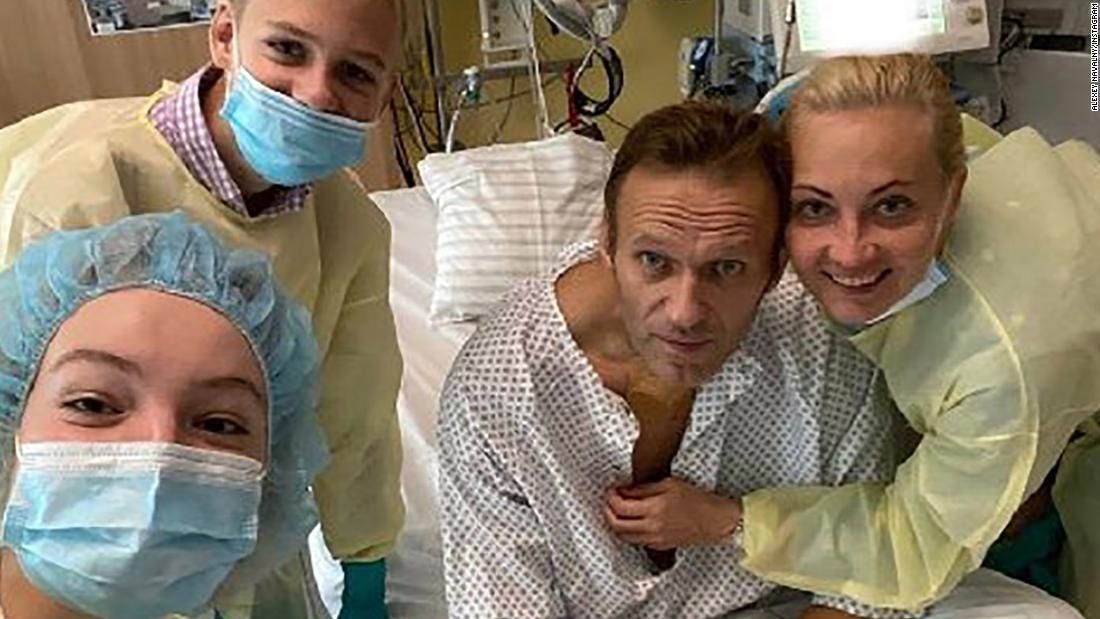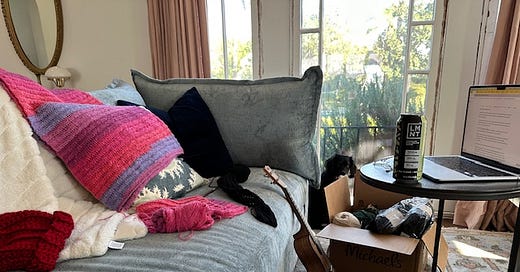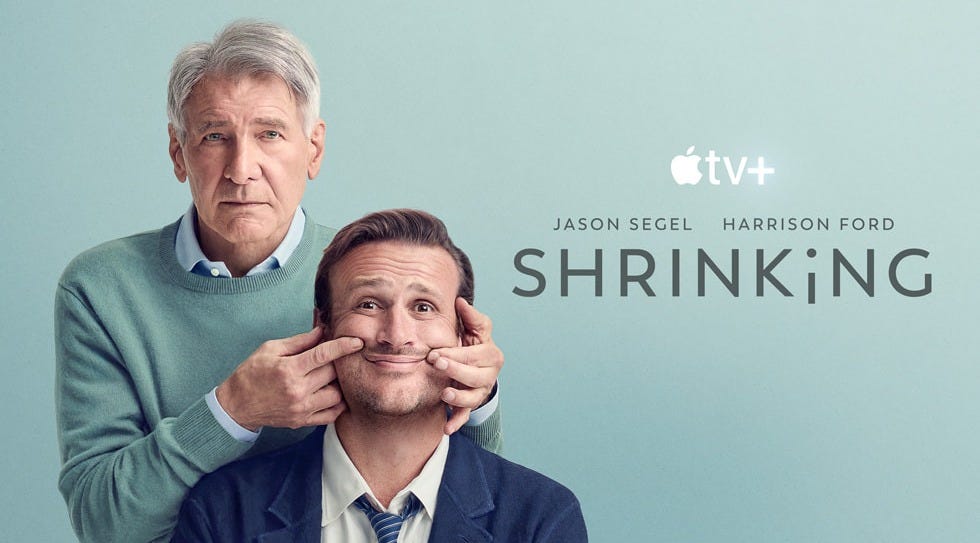Looking for Long COVID Zen
Placebos, Nocebos, and Naltrexone, w/ cameos by Alexei Navalny & Harrison Ford
I chose a wild moment to start focusing on positive thinking and looking for the good in life/the world. But I’ve always liked a challenge.
I thought about doing a funny little bit juxtaposing some ‘positives’ I’ve appreciated in recent days with the absurdly escalating awfulness of the world, but…. then I’d be turning moments of genuine pleasure into fodder for ironic commentary issued from a cynical distance. Which is not the point.
If you’re looking for the good, you see more of it. I get that. But it takes time to train muscles, and also: sometimes you have to sift through a mound of shit to find it.
I went so far as inputting “good news” into a Google News search one day. The top result was about a couple that recovered a priceless item after a wildfire destroyed their home. (“Other than that, Mrs. Lincoln, how was the play?”)
I regret to report that positive thinking failed to ward off a crash.
It's been a rough two weeks. It started well. I was feeling better and engaged in increased activity for two days. By which I mean, e.g., I walked around the block once. I had a meal with a friend at a restaurant. I drove a few miles. During, I felt good, capable, okay. The next day, I was tired, but not exceptionally so. I spent the day resting, to be cautious.
The next day, I texted a friend: Great news! I haven’t crashed!
Cue the other shoe, dropping. Within hours, my energy plummeted. The Primal Trust program advises not talking about symptoms or your sickness. I felt like I was gaslighting myself, trying not to acknowledge symptoms as my body entered Low Power mode and I lost the capacity to do things like speak with expressive emotion or walk to a different room to obtain an object I didn’t necessarily need. I was not okay and I needed to acknowledge that in order to limit my activity further and ask for the help I needed.1
One week of bed-and-couch-rest later, I’m feeling a lot better.
I’m feeling a lot better but.
But I haven’t stood up for more than a few minutes at a time. I’ve left the house once, to go to the doctor.
I know better, now, than to take this as a sign that it’s okay to increase my activity level. I know that feeling better means I should continue resting and allow my body and the medicines to do their work.
I’ve finally titrated up to the therapeutic dose of low-dose naltrexone, which is very exciting because a) it means now (hopefully) it’ll start working and b) I get to start taking it in capsule form instead of beginning my days by filling and squirting (2, 3, 4, 5) oral syringes full of naltrexone-infused olive oil into my mouth. I must not have done a very good job of shaking up the bottle at first because as I approached the bottom of the amber bottle, the taste grew markedly worse.
Before bed the other night, because I’m extremely good at relaxation, I read Alexei Navalny’s final prison diaries, collected in the New Yorker. Navalny, the Russian opposition leader who – after being poisoned in Russia and airlifted to Germany for treatment – elected to go back to Russia, where he was immediately arrested and imprisoned, sent into solitary confinement, and finally condemned to a “special regime” work camp north of the Arctic Circle, where he died this past February.

The most striking part of the diaries is Navalny’s upbeat mood.
“I am really O.K. I am writing this not because I am willing myself to keep up a pretense of being carefree and blasé but because my prison Zen has kicked in.”
He shares his techniques.
The first: “Imagine the worst thing that can happen, and accept it. This works, even if it’s a masochistic exercise. I can imagine that it’s not suitable for people suffering from clinical depression. They might do it so successfully that they end up hanging themselves.”
Navalny has accepted that he will die in prison. No easy task, but aided by political conviction. He chose to get on that plane to Moscow. He views his imprisonment as part of fulfilling his promise to his nation. A demonstration of his unwillingness to capitulate or flee.
The second: religion. “I have always thought, and said openly, that being a believer makes it easier to live your life and, to an even greater extent, engage in opposition politics. Faith makes life simpler.” He continues: “It is not essential for you to believe some old guys in the desert once lived to be eight hundred years old, or that the sea was literally parted in front of someone. But are you a disciple of the religion whose founder sacrificed himself for others, paying the price for their sins? Do you believe in the immortality of the soul and the rest of that cool stuff? If you can honestly answer yes, what is there left for you to worry about?”
This made me think of that Monty Python song, “Always Look on the Bright Side of Life”
Lying in my soft bed in my comfortable home, reading about how Navalny maintained his good mood in an Arctic work camp, I naturally and reasonably made it about myself. If he can do that, surely you can accept this.
Then: As if your life has literally anything in common with Alexei Navalny’s. Although, look, here’s some overlap: you both got sick above the Arctic Circle and have grandparents from the Chernobyl region! Basically twins.
(Don’t worry. I’m well aware of the absurdity of comparing myself to Navalny. I haven’t lost that much perspective yet.)
My suffering is less than nothing, comparatively. It’s pointless, random. It’s not in service of an idealistic goal or furthering a political cause. It’s just a pain in the ass that’s limiting the scope of my current life.
I’ve been watching season 2 of Shrinking – which, if you haven’t seen it, is a heartwarming comedy about therapists with boundary issues. Jason Segel plays a therapist who has spiraled out of control after his wife’s death, leading him to neglect his teenaged daughter and behave recklessly with his patients. Sounds hilarious, right? It’s a fascinating example of the power of tone and framing in storytelling. The characters are grappling with profound pains and often treat each other terribly. Told differently, it could be a cynical or soapy drama; structured as it is, undergirded by humor and a belief in redemption, it’s heartwarming.
In one episode, Paul, a therapist played by Harrison Ford, counsels a young man who has been avoiding difficult conversations because he fears the ensuing pain. Paul teaches him a tool he calls Reversal of Desire: visualize your worst fear as a cloud, and then say, bring it on; I love pain. Visualize the cloud absorbing you and then spitting you out. Learn: Embracing pain can set you free.
On the other hand…vividly imagining your worst fears can worsen stress and health outcomes - so says the Primal Trust brain retraining program as well as the authors of several books piled on my coffee table.
One of them is The Expectation Effect by David Robson, who relays example after example of the power our expectations have to influence reality.
There is, of course, the placebo effect, which has been proven to not just make people think they’ve been cured but to actually produce the same biological changes as real drugs. E.g. your brain can produce opioids after taking a morphine placebo.
But the brain’s prediction machine also works the other way. It’s called the nocebo response, and it occurs when you believe the body is under threat. The mere thought of having a symptom can impact the nervous, immune, circulatory, and digestive systems in ways that make a person physically ill. People taking placebos don’t just report positive effects - depending on how much they know about the drug and its risks, they often experience negative side effects as well.
People who are told they have an incurable illness and therefore expect to remain sick are more likely to do so.
If you expect to get better…will you? Robson cites some studies in which that’s the case - like the people who *think* they had a stent put in their heart and recover even though there’s no stent. What most of these studies have in common is the use of a psychological prime - something (like a sugar pill or a fake surgery) that triggers the body to take curative measures. But you have to believe the prime is real. You can’t think: “I am going to tell myself that these vitamin IV infusions are going to cure me.” You have to truly believe that they might.
But here, a crucial line to draw. Believing that positive thinking can improve health outcomes invites the question of whether the illness is ‘in your head’ in the first place. An extremely sensitive subject, especially for people suffering from chronic illnesses that are very much not psychosomatic but were long dismissed as such - like ME/CFS, autoimmune disease, Lyme disease, POTS/dysautonomia, etc.
Mind vs Body
So far, I’ve encountered two distinct camps on chronic illness treatment: the mind people, and the body people. The former argue that we have the power to heal sickness through mental efforts; the latter, that these illnesses have nothing to do with the mind.
I don’t understand the insistence on binary thinking when it seems pretty obvious to me — an expert with two weeks of self-directed research under my belt, all conducted from bed — that it’s not an either/or situation. Post-viral illnesses are real, physiological diseases triggered in the wake of various viruses. A person cannot control their immune system with their mind.
Still, everyone seems to agree on this point: stress worsens health outcomes. Studies have shown that the human body responds to anticipated and imagined stress as if it is lived stress.
Stress activates the sympathetic nervous system, releasing hormones that are useful in short-term fight-or-flight scenarios, provided the body returns to baseline afterward. But if it doesn’t, that’s when shit gets bad. Imagine a theme park but the employees are all very stoned and the rides are understaffed and it’s suddenly a free-for-all for turnstile-jumping viruses and oh also by the way the stoned employees have all lost their glasses, so when they try to impose order and kick out the trespassers they can’t tell the trespassers and the other employees apart and their options are either to let the trespassers stay or punish their own.
Could I have come up with a less convoluted metaphor? Certainly. Am I going to go back and do that? No. Forgive me. My brain is not in full disarray, but it’s not in ship-shape condition, either. (Wait. Hold on. Expectation effect. My brain is fine; I’m just tired today. There we go!)
So let’s say you’re dealing with an inherently stressful experience like chronic illness. You’d be well served to avoid feeling stressed about it.
But how? Maybe this is where acceptance comes into play. The “I’m okay” of Primal Trust, the visualize your fears to liberate yourself approach of Alexei Navalny and Harrison Ford-as-Paul-the-therapist.
Or…maybe not? Because according to The Expectation Effect, acceptance = vividly imagining and then accepting a life with chronic illness = creating an expectation that will prevent healing.
The mind is in control.
The mind has no control.
I must accept the situation and embrace my life, sickness and all.
I must imagine a future with this illness, really, deeply imagine the worst version of it, and then make peace with it.
I must not imagine the worst future version of this because then I will expect it and it will be more likely to happen!
I must imagine healing and then I will. But only if I really really believe it.
Here’s where I’ve landed for now: I’ve concluded that untangling potentially contradictory approaches is less important than doing whatever it takes to limit emotional stress.
I continue to work on thinking less about my symptoms and sickness and the implications of it all. (Claims the person writing about mental gymnastics on that very subject. Who, me? You’ve got the wrong guy.)
I am trying, though. Trying to stay present. To look for the good. To rest. But trying to do it without trying too hard. I don’t want to stress myself out in an attempt to destress. (Is this stressing you out yet?)
I’ve never been good at straightforward meditation, though I’m trying it. I find it easier to achieve meditative calm through or in service of activity.
Which is why my living room is exploding with yarn and my fingertips are callused. Crochet and ukulele – a random and almost deliberately-eccentric-sounding combo, I know. Very early-aughts manic pixie dream girl of me.
But they have some crucial things in common: I’m a beginner at both, so the stakes are low. As is the bar for achievement.
I often feel incompetent. It’s less a feeling of intellectual ineptitude than it is an absence of bodily knowledge. I’m learning that if I keep trying, with repetition, my fingers will learn how to work in new ways, and when they do, when I hear the right musical notes or figure out the stitch, then: there is pleasure. Pleasure in the moment, in the tangible reminder of my capacity for growth. And an expectation of more to come.
I was also defining ‘okay’ incorrectly, according to the Primal Trust program’s definition. Their version of ‘okay’ involves not feeling healthy but making peace with your life/illness as it is, symptoms and all.









You might be interested in reading Bright Sided for a history of positive thinking in the U.S.
Then highly recommend Care Work for truly real and healing look at disability justice.
I became chronically ill at 21 after a bad case of mononucleosis. Fully disabled after being rear ended at 29, and now mostly housebound afar one covid infection in 2022 at 38.
I never give up on getting symptom relief, but I know there’s not a magic bullet either. And I know this difficult life has given me a perspective and wisdom that I wouldn’t give up for the chance to be cured.
Thank you for sharing what you’re exploring!
Edit: and I agree that bringing down stress can help with some symptoms. For example, I have MCAS, and stress can degranulate mast cells, releasing histamine.
Oh! And the long covid reddit group is helpful. So
Many ideas to try.